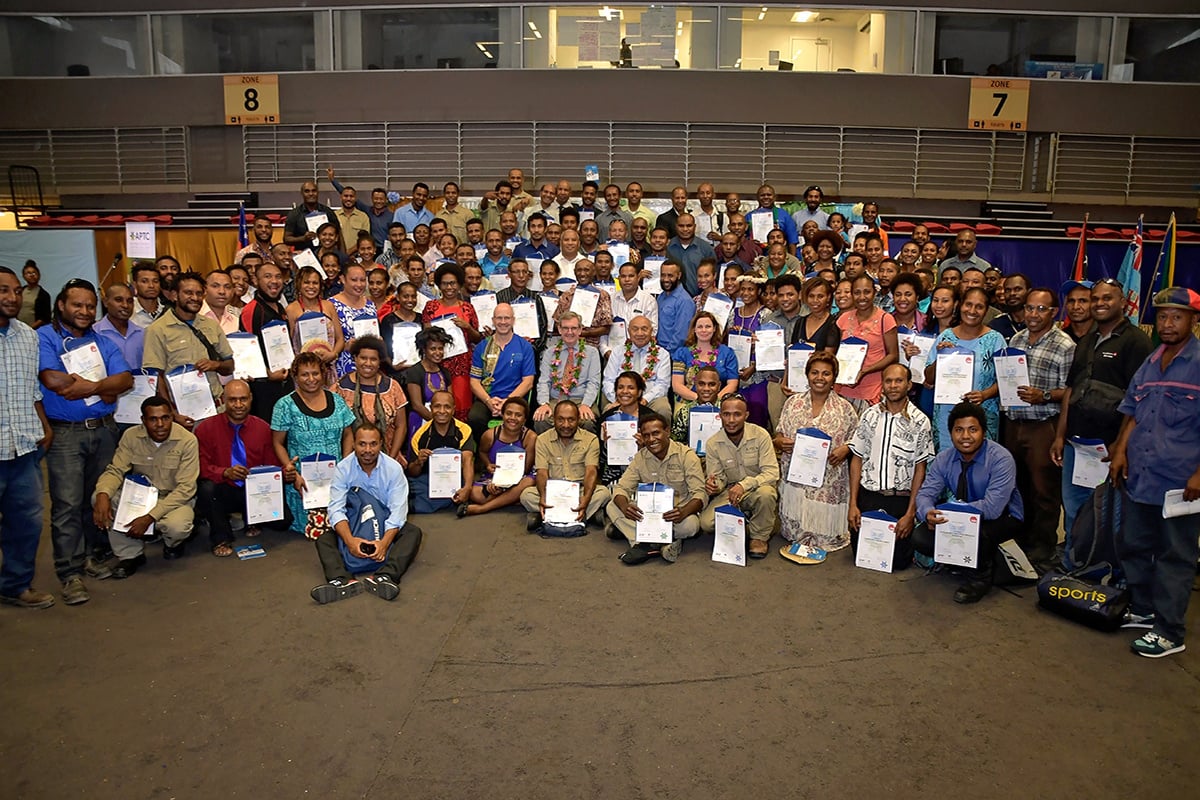A new Pacific anti-corruption partnership in vocational training was launched in Fiji earlier this month, created by the United Nations Pacific Regional Anti-Corruption (UN-PRAC) Project and the Australia Pacific Training Coalition (APTC).
For the first time, this partnership brings together competency-based training specialists with governance and development specialists to focus on practical ways to embed critical thinking skills into established accredited training programmes and develop new courses to prepare the Pacific’s future leaders and workforce on how to recognize and address corruption.
The Anti-Corruption Partnership for Vocational Education and Training will run from May to December 2020 as part of trainings in Fiji, Papua New Guinea (PNG), Samoa, Solomon Islands and Vanuatu.
APTC Chief Executive Officer, Soli Middleby, said that, “APTC sees over 1,200 Pacific Island citizens graduate each year with internationally recognized qualifications across training locations in Fiji, Kiribati, Nauru, Papua New Guinea, Samoa, Solomon Islands, Tonga, Tuvalu and Vanuatu.”
“This partnership will greatly benefit our future graduates as well as many other young people, civil servants, civil society and private sector participants across the region. Our teams have worked together to both embed new learning into APTC’s existing programs as well as develop new anti-corruption courses that can be delivered online as well as through a virtual network of advocates for anti-corruption in Fiji, Papua New Guinea, Samoa, Solomon Islands and Vanuatu,” said Middleby.
UN-PRAC and APTC have agreed to work on the following areas of cooperation:
Development and delivery of an anti-corruption training module in conjunction with APTC’s Leadership and Management Programme;
Joint advocacy activities to raise anti-corruption awareness among the youth and adults in the Pacific region and specifically in Fiji, Papua New Guinea, Samoa, Solomon Islands and Vanuatu, where possible;
Development of anti-corruption materials, including upgrading the Pacific Youth Anti-Corruption Advocate’s Toolkit.
“The UN-PRAC Project takes a multi-pronged approach to helping Pacific Island countries advance their anti-corruption agenda. These efforts include engagement with formal and informal education institutions at all levels to develop and deliver anti-corruption public education programmes and materials,” said United Nations Office on Drugs and Crime (UNODC), Regional Anti-Corruption Adviser for the Pacific, Annika Wythes.
The Effective Governance Team Leader for the United Nations Development Programme (UNDP) Pacific Office in Fiji, Revai Makanje Aalbaek, highlighted that this new partnership will help foster long-term integration of anti-corruption content into APTC educational programmes and creating a generation of young leaders of today and tomorrow who respect the principles of good governance .
“This partnership with APTC will provide a strategic entry point for anti-corruption education for a broad range of stakeholders, including managers and leaders of different educational and professional backgrounds who could apply and share this knowledge in their daily work in the Pacific region,” said Aalbaek.
The UN-PRAC Project Phase II is a four-year initiative jointly implemented by UNDP and UNODC with funding from the Australian Government to support 15 Pacific Island countries strengthen their national integrity systems.
APTC, which is supported by the Australian Government and managed by TAFE Queensland, is recognized as a centre of training excellence and collaboration, helping Pacific Island citizens gain Australian-standard skills and recognized qualifications for a wide range of vocational careers throughout the Pacific region. Apart from training for individuals, APTC also works with national and regional stakeholders to support their training quality priorities and offers customized training in targeted industry sectors.
You May Also Like
These Related Stories

Senior Pacific police to develop leadership and management skills
